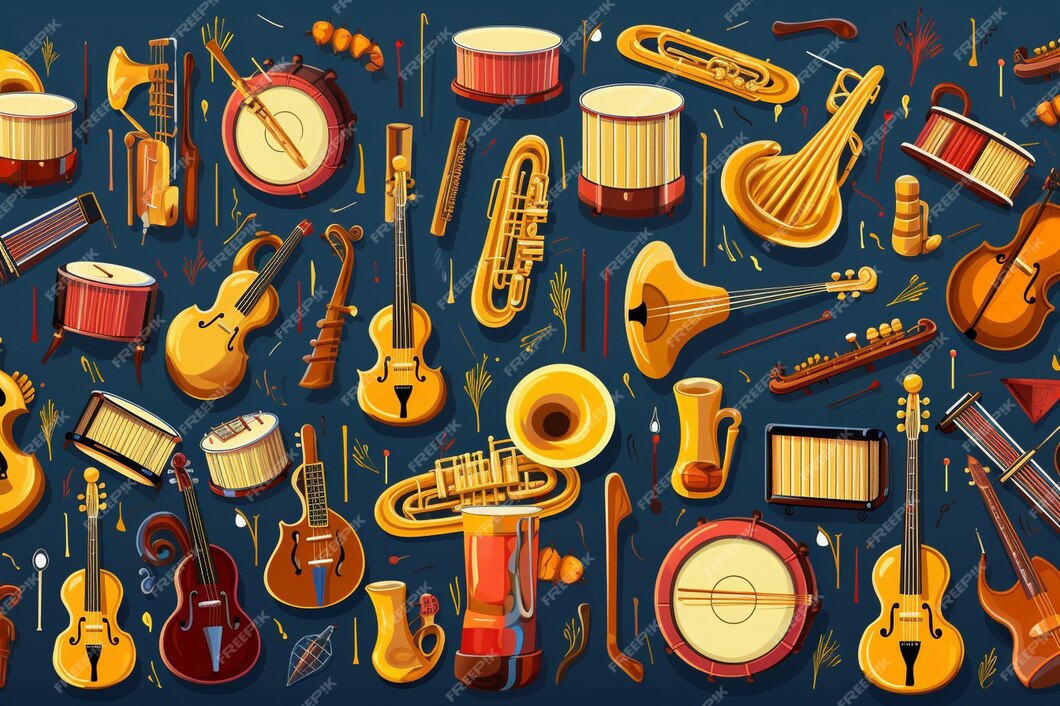Mastering Instruments: An All-Inclusive Guide to Acquiring and Expanding Your Abilities
Picking up a musical instrument is a fulfilling experience that has several advantages, such as improving mental functions and giving one a creative way to express oneself. Whether you're drawn to the mellow piano notes, the pounding drum beats, or the heartfelt guitar melodies, taking a musical journey unlocks a world of opportunities. We'll dive into the art of learning musical instruments in this extensive book, including methods, materials, and advice to help you start your musical journey with confidence and zeal.
Choosing the Right Instrument
Making the ideal instrument choice is the first step on your musical journey. Think about your hobbies, inclinations, and your favorite musical genre. Select an instrument that expresses your passion for music, whether it is the grace of classical music or the vigor of rock & roll. Before choosing, learn about various instruments, their tonal qualities, and the amount of practice needed to become proficient with them.
Setting Realistic Goals
Setting attainable goals is essential to making progress when studying any kind of instrument. Whether your goal is to play a particular piece, join a band, or just get better, creating benchmarks will motivate you as you go along and help you keep track of your progress. To ensure consistency and steady growth, break down your goals into smaller activities and design a practice routine that works with your lifestyle.
Finding Quality Instruction
Seeking advice from a knowledgeable teacher can help you learn new material much more quickly. Through online tutorials, group sessions, or private instruction, a qualified instructor offers customized feedback and direction based on your learning preferences. Additionally, to enhance your learning and obtain a variety of viewpoints on theory and technique, investigate resources like interactive applications, video classes, and instructive books.
Cultivating Effective Practice
HabitsThe foundation of musical proficiency is practice, yet different practice techniques have different effects. Adopt intentional practice methods by concentrating on your areas of weakness and pushing yourself to overcome challenges. To improve your skills methodically, break down difficult portions, include sight-reading exercises, and make use of practice tools like metronomes and recording devices. To maintain your motivation, always strike a balance between entertaining repertoire and concentrated practice.
Understanding Music Theory
While for some people playing by ear comes naturally, knowing music theory allows for a deeper knowledge of the language of music. Learn the basics of scales, chords, rhythm, and notation to expand your knowledge of music and improve your ability to understand it. Examine interactive theory apps, educational books, and online resources to help you learn and apply theory to real-world playing.
Expanding Musical Horizons
Increasing the variety of music you perform exposes you to various genres, approaches, and creative expressions. To extend your musical horizons, try your hand at improvisation, investigate various genres, and work with other musicians. Take in the dynamic music scene by going to live concerts, workshops, and music festivals; you'll get inspiration from seasoned musicians.
Overcoming Challenges and Staying Motivated
Picking up a musical instrument is a path that is full with obstacles, disappointments, and self-doubt. Recognize that learning requires patience and persistence and accept that it will take time and effort to make improvement. Appreciate little accomplishments, ask other artists for help, and keep an optimistic outlook despite setbacks. Recall that every obstacle you overcome puts you one step closer to mastery, and that failures are just opportunities for learning.
Embracing Lifelong Learning
Being proficient in music is a lifelong process of learning and development rather than a destination. Accept the delight of lifelong learning as you explore new methods, styles, and musical directions. Maintain your curiosity, openness, and receptivity to criticism while fervently and assiduously pursuing your love of music. Every note that is performed on an instrument, whether you are a beginner or an experienced player, is an enlightening adventure.
Conclusion:
Acquiring proficiency in a musical instrument fosters creativity, self-expression, discipline, and transformation. With the correct instrument, reasonable goals, good tuition, and productive practice habits, you can confidently and enthusiastically set out on this musical journey. Remember that mastery is a lifelong process of growth and discovery rather than a destination, so embrace the obstacles and appreciate your achievements. Thus, grab your instrument, let your imagination run wild, and let the music lead you on an adventure filled with limitless opportunities.

